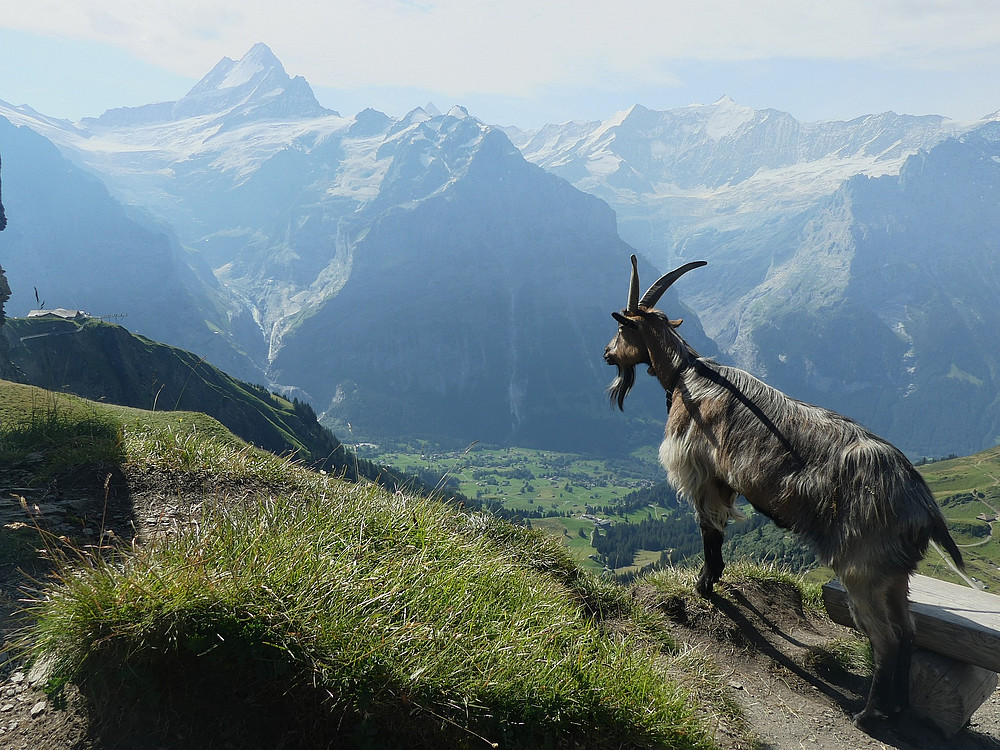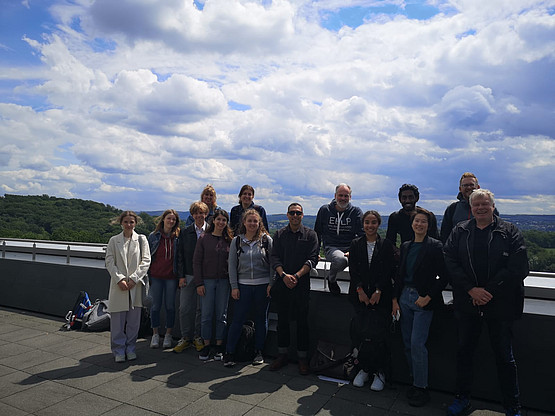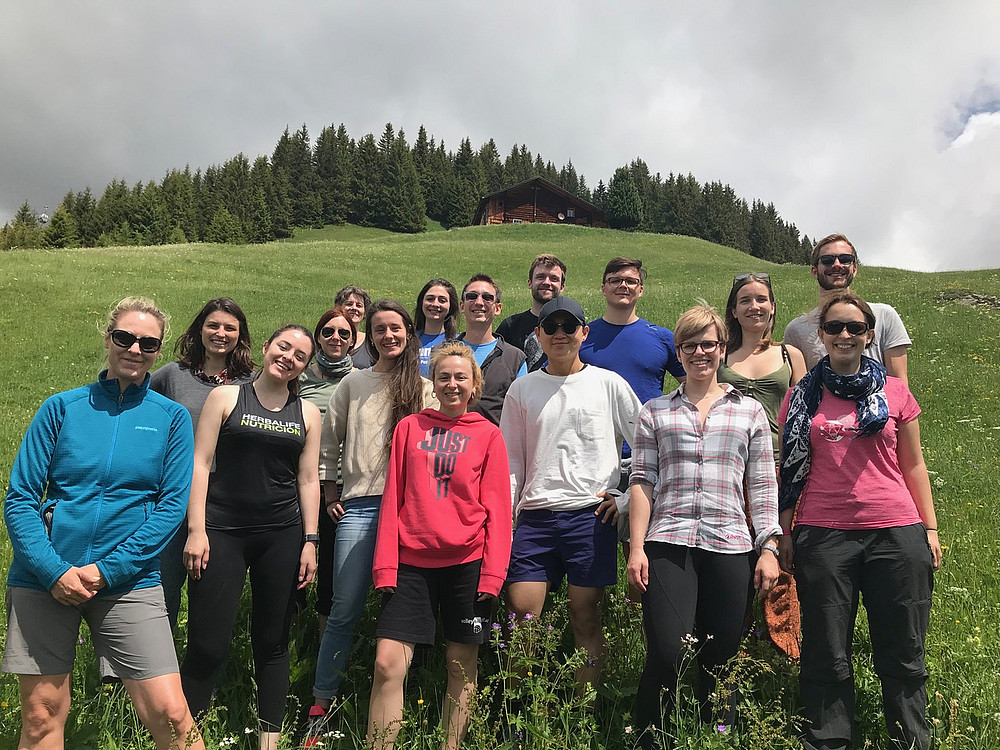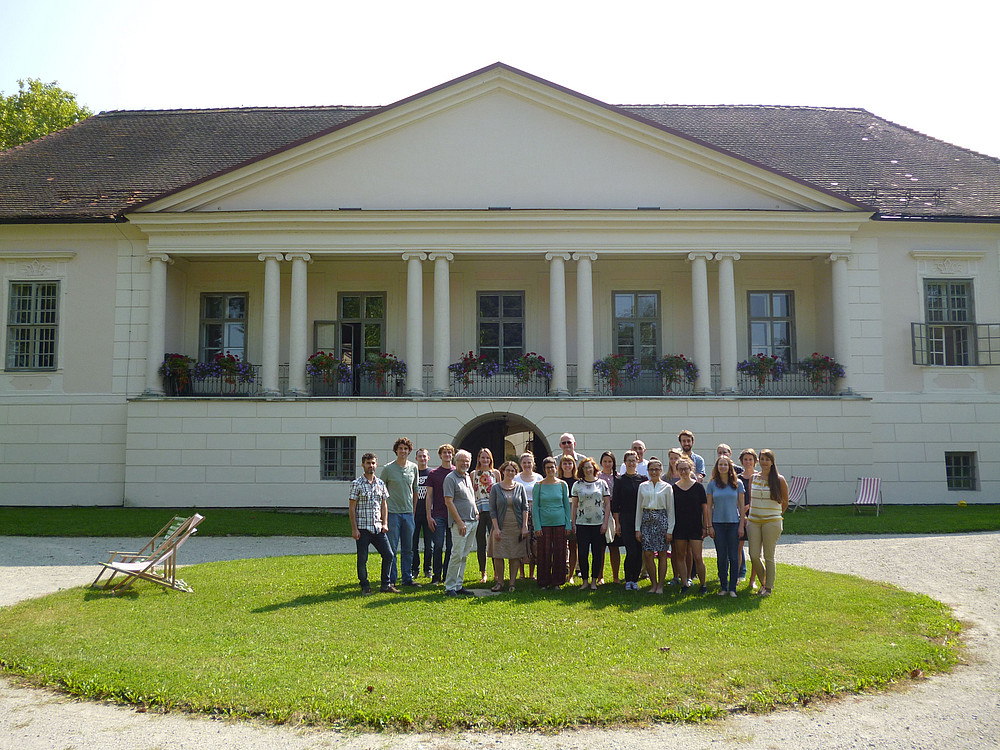Review of past summer schools
Summer School Grindelwald 2023
Current issues in political philosophy - Apply now!
MA Political, Economic and Legal Philosophy
Call for applications (for travel and accommodation scholarships):
Bern-Bari-Bochum-Graz Summer School "Current Issues in Political Philosophy"
Grindelwald (Switzerland), June 18-23. 2023
The Summer School has now established itself as a means of bringing together academics and students from different universities and countries to work together. Five intensive days full of exciting inputs, interdisciplinary workshops and inspiring encounters on the topic of Current issues in political philosophy await you with colleagues from the universities of Bern, Bochum and Bari.

June 18 - 23, 2023 | |
Application deadline | March 3, 2023 |
Language: English | English language |
ECTS | 6 ECTS |
Applicants | PELP students of the University of Graz (if you are not a PELP student and would like to apply, please send a letter of motivation in addition to your CV and overview of grades) |
Expected workload | Active participation, presentation of texts, leading discussion groups and term papers |
Scholarship | The host institution (University of Bern) will cover the costs of on-site meals and accommodation. Students will be reimbursed up to CHF 300 of their travel expenses. |
Summerschool Bochum 2022
Challenges to a Sustainable Future
After a long break, the Summer School took place again from May 31 to June 5, 2022 in Bochum (Germany). This Summer School was jointly organized by lecturers from all three universities for PELP students from the University of Graz and for students of the Master's programs PLEP (University of Bern) and EELP (Ruhr University Bochum). In the summer school, current topics in political philosophy were presented in a seminar format and in English and discussed in a friendly atmosphere.
This year's topic was "Challenges to a Sustainable Future". These challenges were discussed in interdisciplinary blocks on climate change, migration, human rights, race-, sex- and gender-based inequality and populism. In particular, an ethical perspective on these topics was combined with political, economic and legal solutions. There was also time for a meal together and informal discussions.


Summer School Grindelwald 2018
As in previous years, a summer school was held in 2018 in cooperation with the Master's programs PLEP (Bern), EELP (Bochum) and PELP (Graz) from 3 to 8 June at the Lauchbühl conference center (Grindelwald) in the Bernese Oberland. Against the backdrop of the Swiss Alps, students and lecturers from the universities of Graz, Bern and Bochum had the opportunity to get to know each other, network and discuss current issues in political philosophy in English. The main topics covered were moral psychology and democratic theory, global poverty and consumer ethics, human rights, migration and the debate on global freedom of movement.
An average of three 90-minute sessions took place per day, in which either the teachers gave an overview of one of the topics or texts previously read by the students were discussed. There was also the opportunity to take part in hiking tours and other sporting and social activities. There was also plenty of opportunity to discuss political philosophy issues with others outside of the sessions.
On Monday, Dr. Norbert Paulo (Graz) discussed (hypothetical) biomedical methods of improving human beings from a moral perspective. The focus was on the question of what implications the application of such methods would have for democratic theory and what the psychological conditions for the functioning of democracy actually are.
On Tuesday, we discussed issues surrounding the problem of global poverty with Prof. Corinna Mieth (Bochum) on the basis of relevant texts by Peter Singer and Thomas Pogge. In the afternoon, we were able to explore these and other topics further on a joint hike.
On Wednesday, Prof. Markus Stepanians (Bern) introduced us to the current state of the debate on human rights and their philosophical justification based on an overview article by Cruft, Liao and Renzo. In addition, Prof. Mieth presented her reflections on consumer ethics, which gave us the opportunity to discuss in depth problems that had arisen the previous day and questions that remained unanswered.
On Thursday, Prof. Anna Goppel (Bern) discussed with us the question of whether previous residence in a state should be a condition for being granted the right to vote in that state. Dr. Andreas Cassee (Bern) then introduced us to the debate on international freedom of movement and presented a plea for open borders. As part of this debate, we also discussed a text by Michael Blake in which he argues for the right of states to exclude unwanted potential immigrants under certain circumstances.
On Friday, Prof. Goppel, referring to a text by Shacknove, discussed with us the question of what should constitute refugee status. In a short final round, we then had the opportunity to give feedback on the course and content of the Summer School before we left for home in the afternoon.
The summer school was very interesting and instructive for both students and teachers. Above all, it was a lot of fun. We hope that it will take place again in the coming years.
Retzhof Summer School 2016
Poverty, migration and climate change
As in 2013 and 2015, a summer school took place in the 2016 summer semester as part of the PELP Master's program, this time from 12 to 16 September at Schloss Retzhof (Leitring/Wagna), in cooperation with the PLEP Master's program at the University of Bern and the EELP Master's program at Ruhr University Bochum.

Due to global upheavals of a political, economic and climatic nature, phenomena of global poverty and migration have emerged in recent years that affect a large number of people. At the same time, the people and institutions responsible for regulating and combating these problems are facing enormous practical challenges. This makes it particularly difficult to evaluate their options for action from the perspective of normative theory. The closely interwoven issues of global poverty, climate change and the resulting, also global, migration movements were therefore examined from various angles from a normative perspective.
Prof. Lukas Meyer from Graz dealt with the topic of climate justice and Amelie Stuart from the Department of Political Philosophy with the complex of gender and poverty. Prof. Wolfgang Benedek shed light on the implications of global migration under international law, while Prof. Anna Goppel (University of Bern) and Prof. Corinna Mieth (Ruhr University Bochum) addressed the interrelationship between poverty and migration from a philosophical-normative perspective.
These closely interwoven topics were examined from various angles at the Summer School, which was primarily aimed at students of the Master's in Political, Economic and Legal Philosophy.